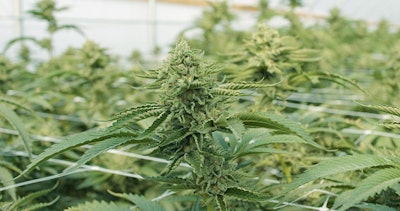
In the event of a product recall or the destruction of your crop, would you be confident that your product liability and crop insurance policies provide adequate coverage to protect your business?
According to Mike Bush, partner at National Cannabis Insurance Services, the biggest risks to cannabis businesses are crop loss and product liability lawsuits caused by a product recall or a claim that someone was harmed by consuming a product.
“Claims happen,” he says. “Are you sure your product liability policy provides coverage in the event of a product recall or if someone claims they are harmed by consuming a purchased cannabis product? We review the fine print so you are not left wondering ‘Am I covered?’”
Product Liability Insurance
Product liability exposures for cannabis businesses are vast and include edibles, vaporizers, pesticides, mold/fungus, breach of warranty, misrepresentation, label claims, failure to warn and deceptive practices.
The main concern with cannabis products, and thus a major area of exposure for your business, is impairment, Bush says, which National Cannabis Insurance Services often finds as an exclusion in many dispensaries’ insurance quotes. In addition, a manufacturer, distributor or retailer is also considered liable for defects in the manufacture or design of a final product that causes injury when it is being reasonably used.
Bush says that while product liability can be based on a defect or negligence, it is more commonly based on strict liability that says a seller, distributor or manufacturer of a defective product is liable to a person injured by that product, regardless of whether the defendant did everything possible to make sure the defect never happened. Strict liability has been invoked for manufacturing, design and warning defects. Anyone in the distribution chain can be liable, whether it is the cultivator, processor or dispensary, he adds.
Pesticides and additives in products can cause recalls, Bush says. The direct application of banned substances, residual contamination or processors contaminating trim during extraction can lead to a pesticide recall, while CBD produced outside the regulated market and terpenes not created in FDA- or state-licensed facilities can cause an additive recall.
For example, Denver-based ALCC LLCC, doing business as The Dab by Next Harvest, is voluntarily recalling retail marijuana products due to the presence of elevated yeast and mold counts and potentially unsafe pesticide residues. In addition, Emblem Cannabis Corp., a Canadian licensed medical producer in Ontario, also began a voluntary recall last month of four lots of dried marijuana when the CBD content identified on the label was higher than the concentration actually present in the products. Product liability coverage can help in cases like these to protect against claims brought by consumers affected by the recalled products, Bush says.
Contracts are becoming increasingly prevalent within the cannabis supply chain, he adds. Contracts typically further define responsibility between parties, which has insurance implications.
Crop Insurance
A crop insurance policy covers cultivators if there is a loss to the crop, under certain conditions, such as fire, lightning, wind, hail, theft and sprinkler leakage, among others. Loss caused by changes in climate or mold, disease and fertilization issues, however, is generally not covered by crop insurance policies.
Although it is not currently required by any state, National Cannabis Insurance Services recommends crop insurance to every legal cannabis grower. Cannabis crops are extremely valuable and take roughly four months to harvest. An entire grow could be destroyed in a fire, such as the fires that decimated California’s cannabis farmers last year. Even when flames didn’t ignite the crop, the smoke and ashes resulted in plants testing positive for asbestos, lead, arsenic and magnesium. Some growers suffered a total loss, while some cashed in on crop insurance policies. One Carpinteria farmer, Bush says, received an insurance payout of over $1 million when the California fires destroyed thousands of his plants.
Top Image: © CascadeCreatives | Adobe Stock

















